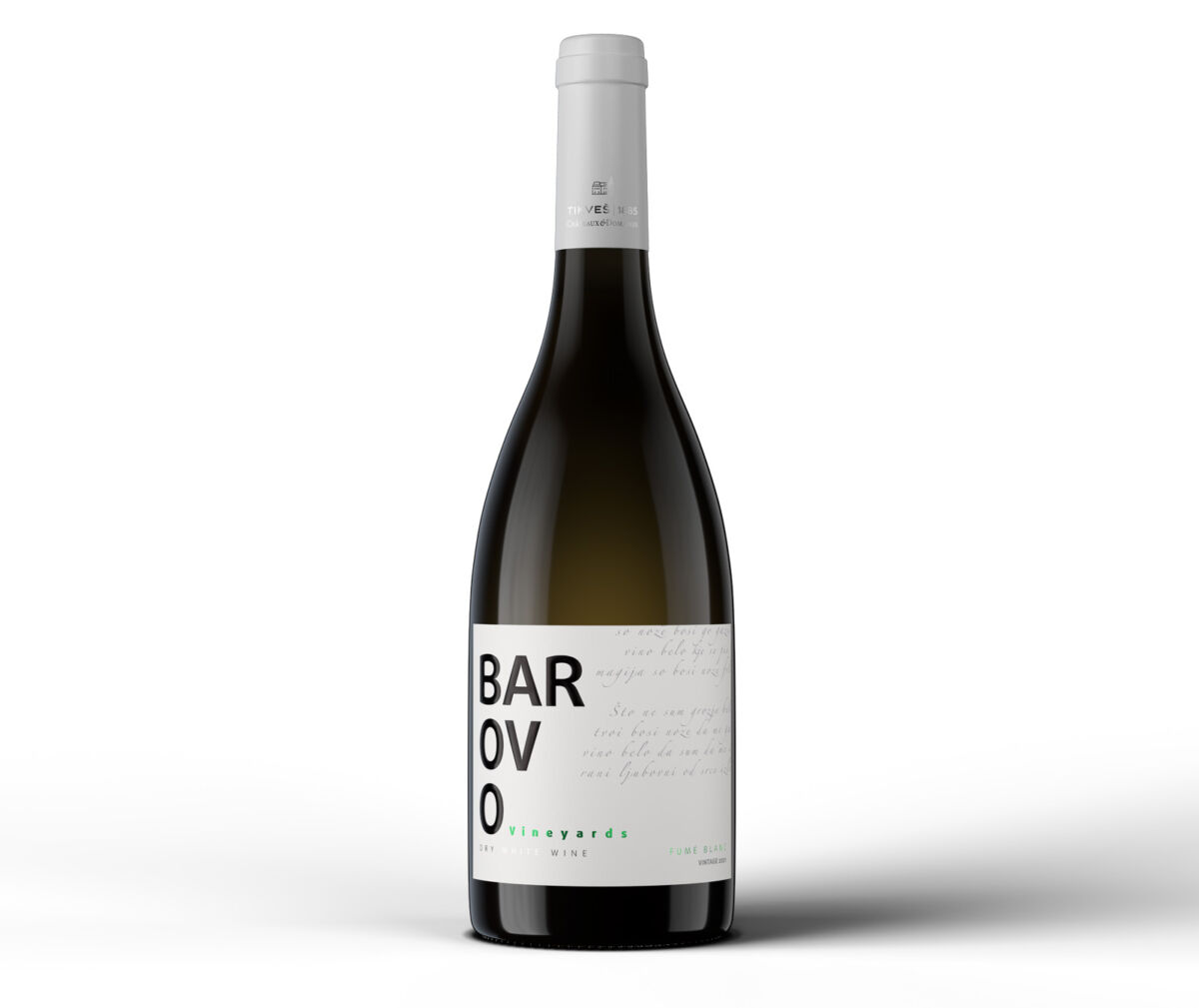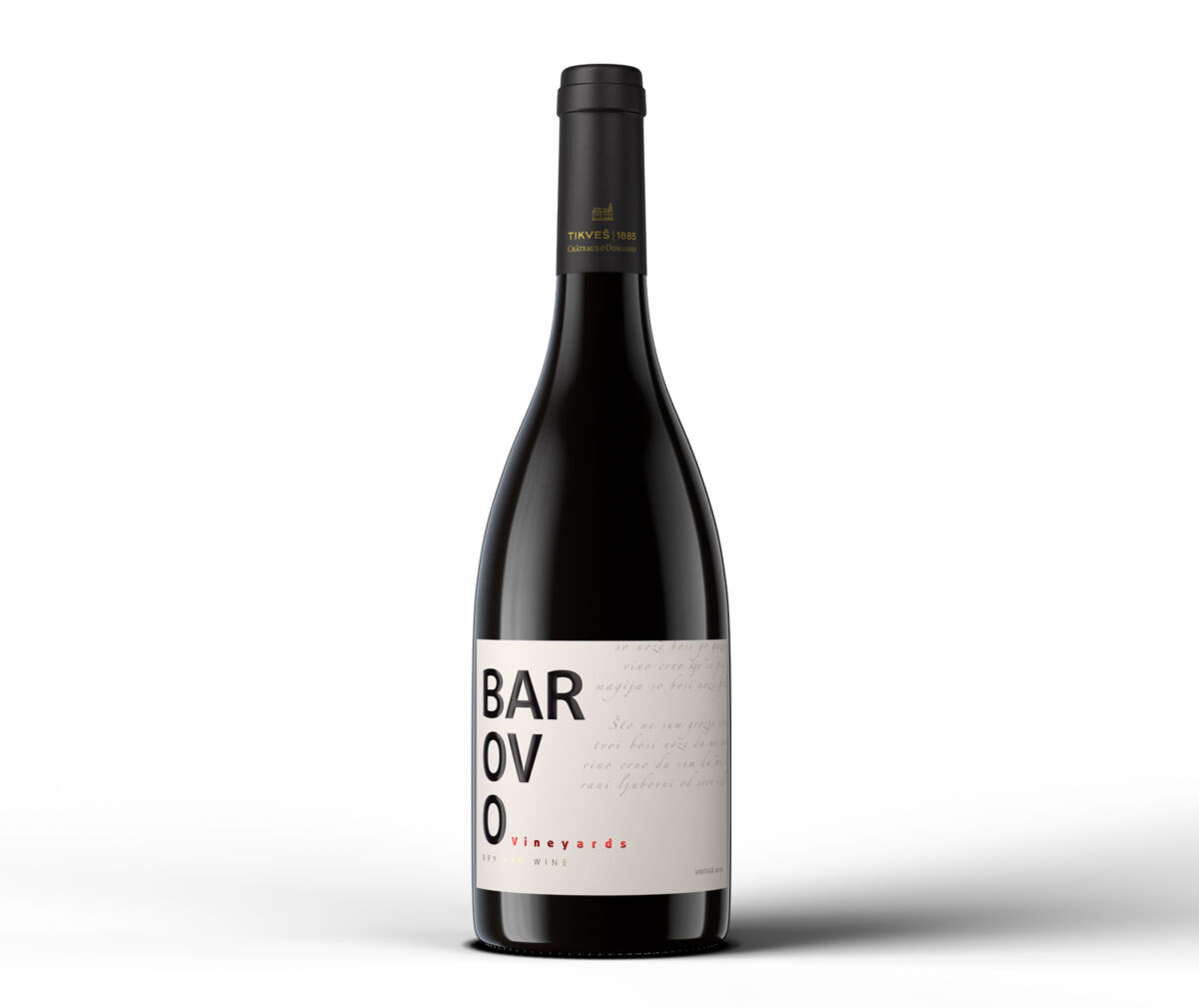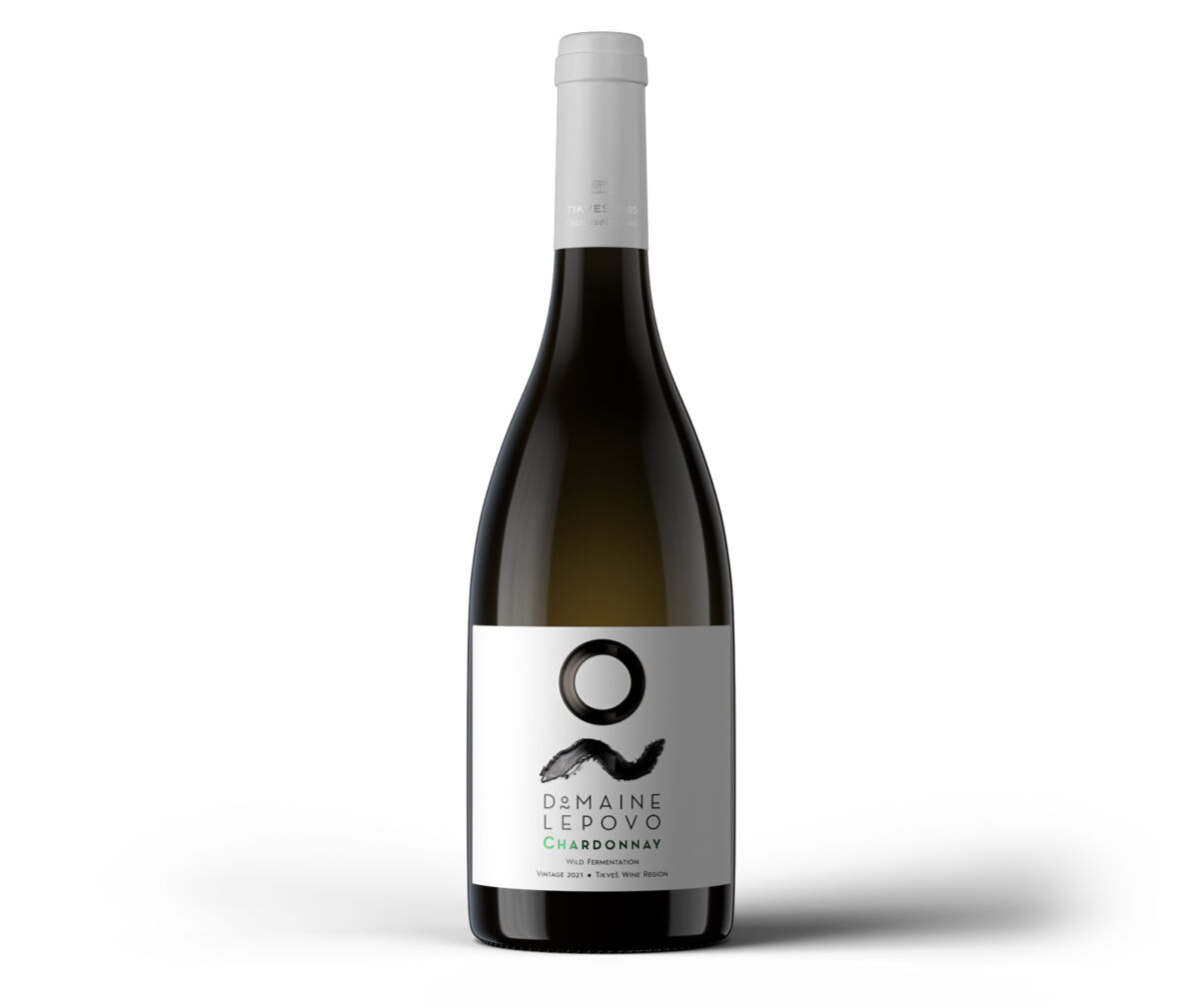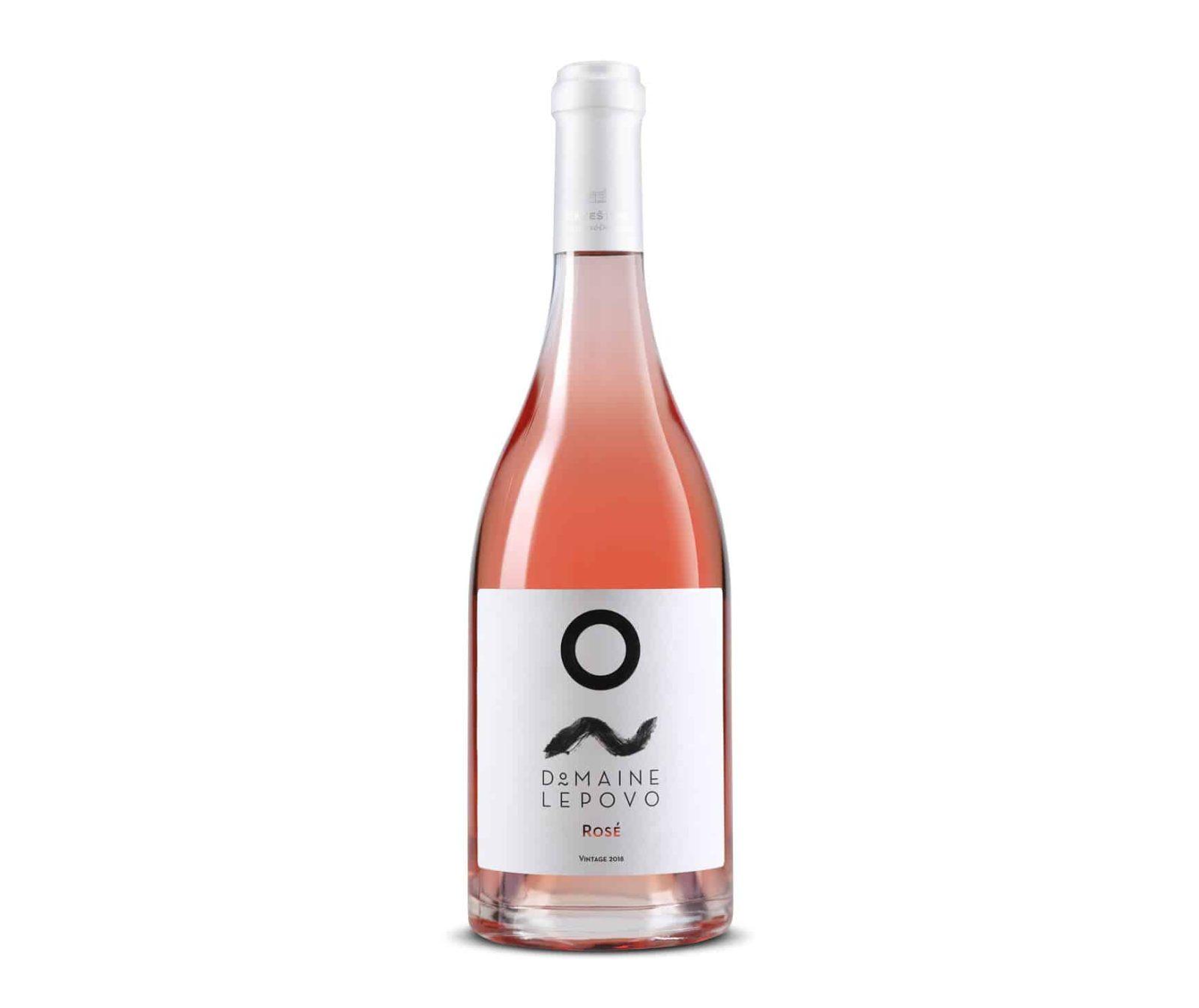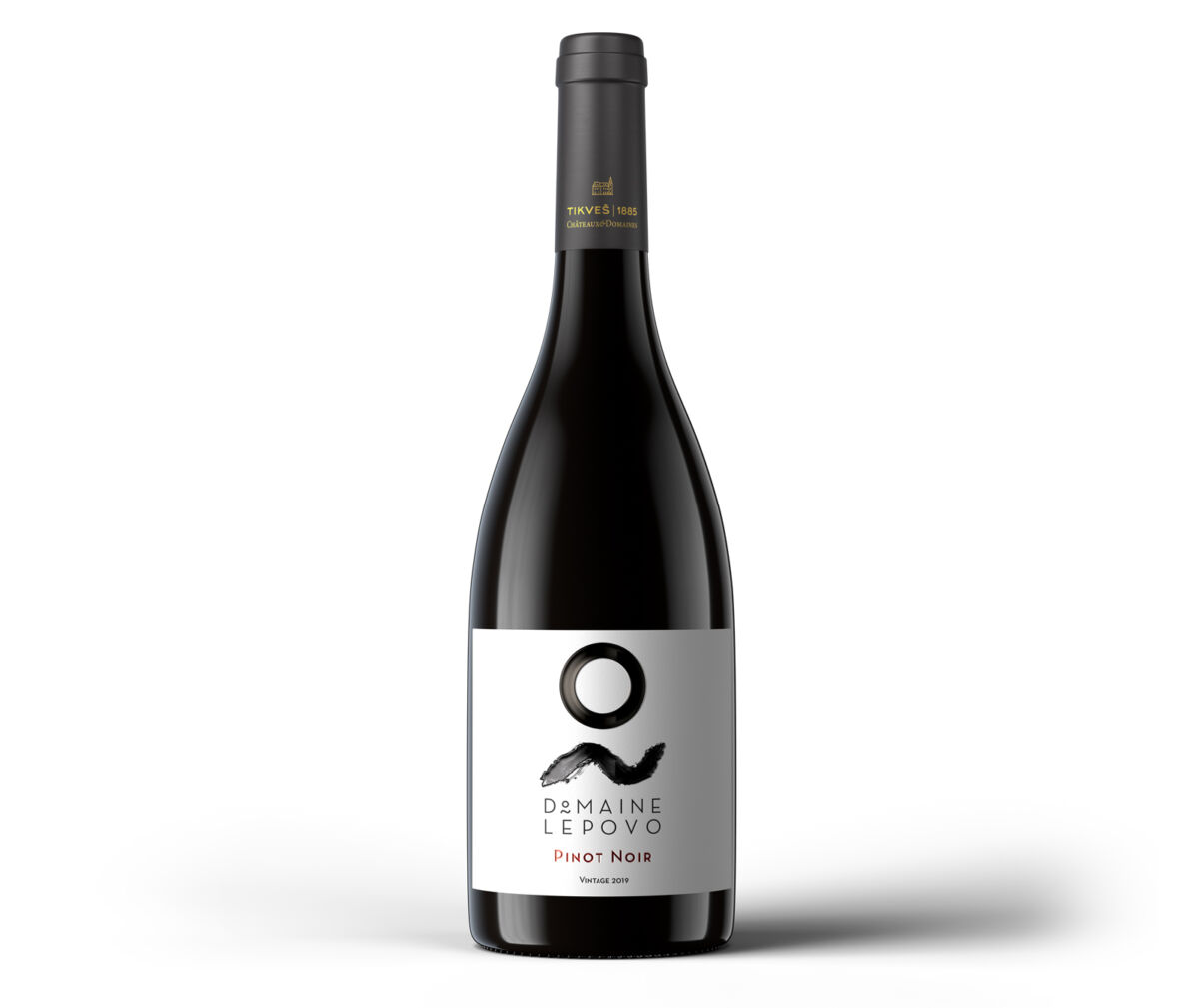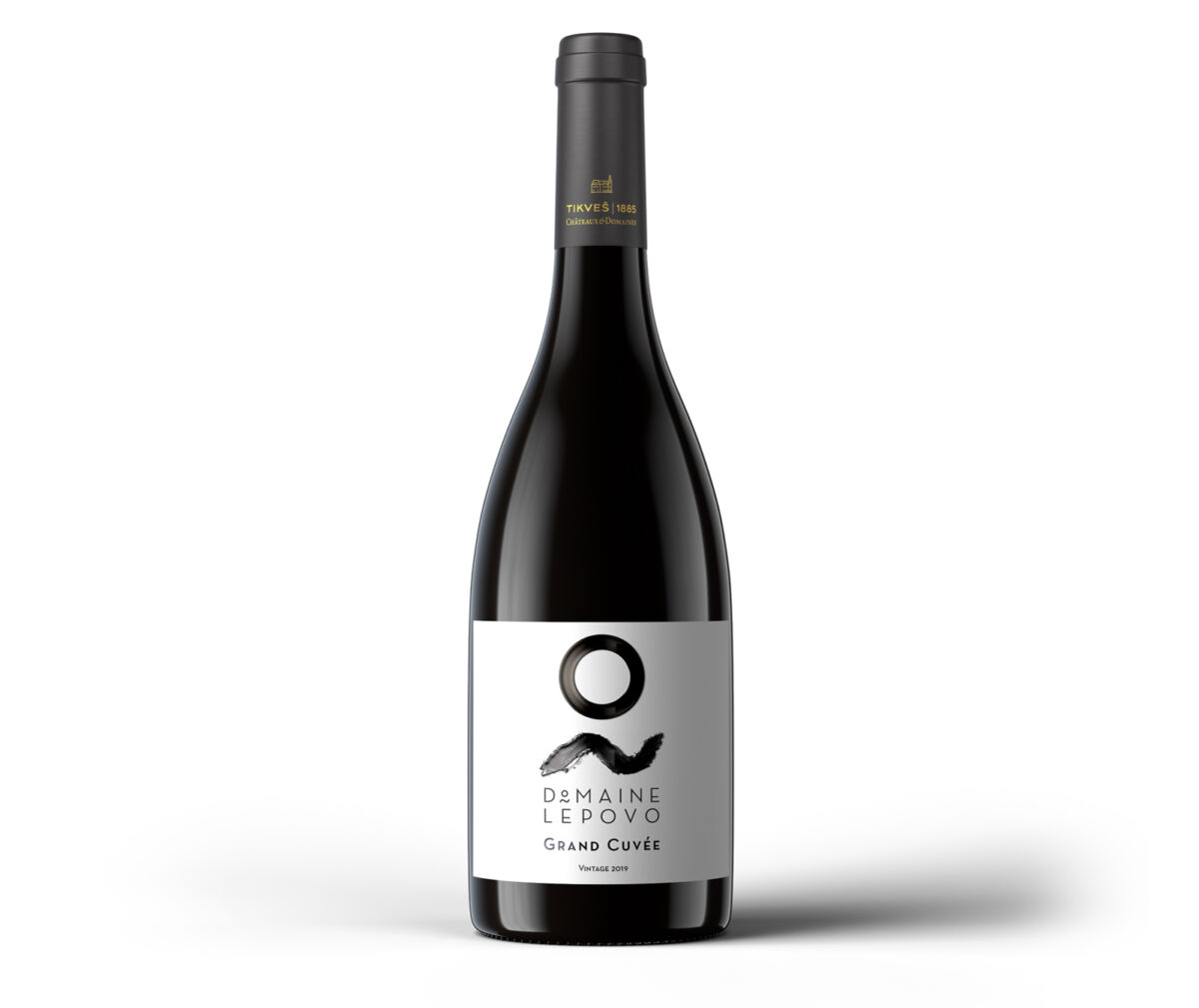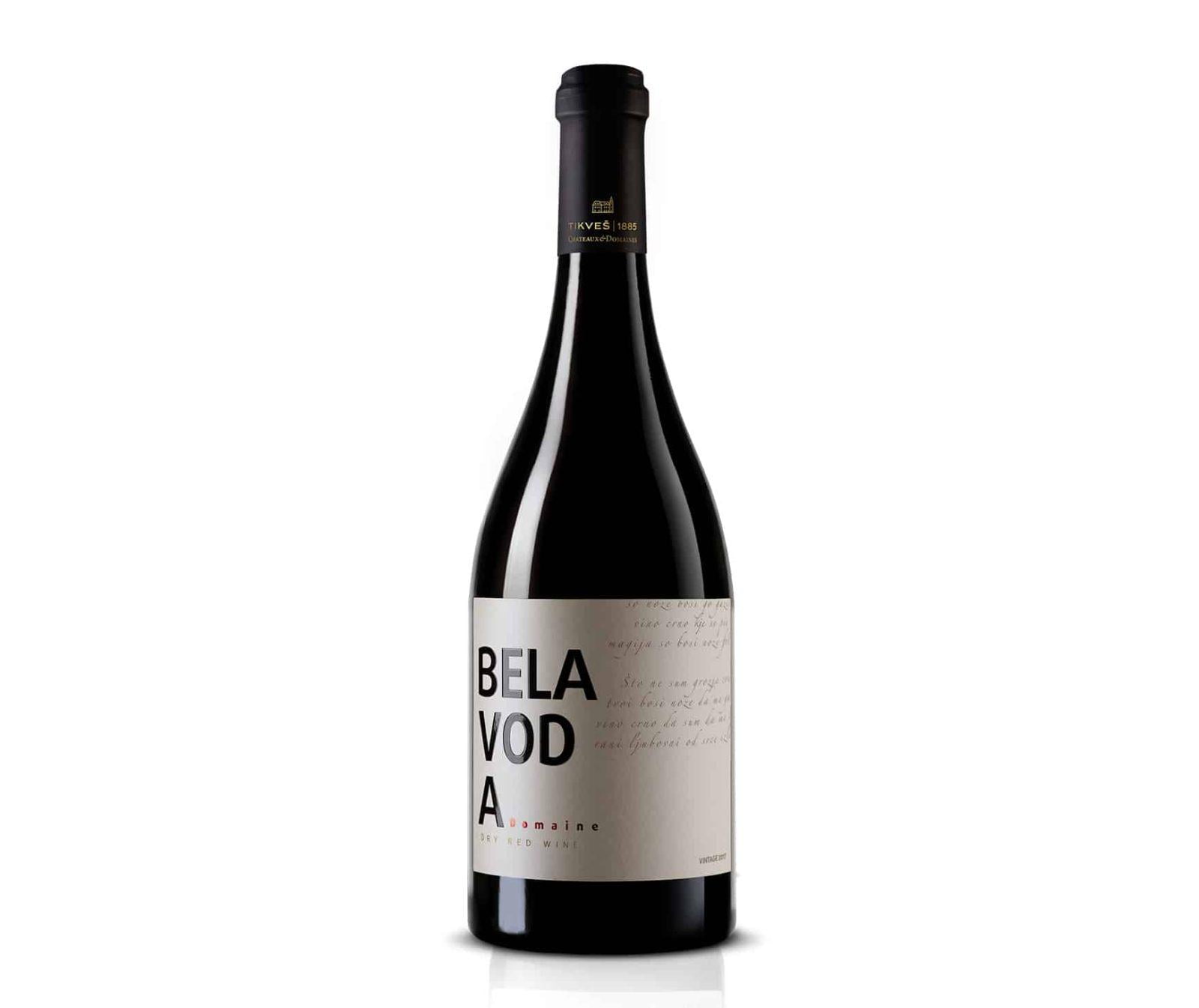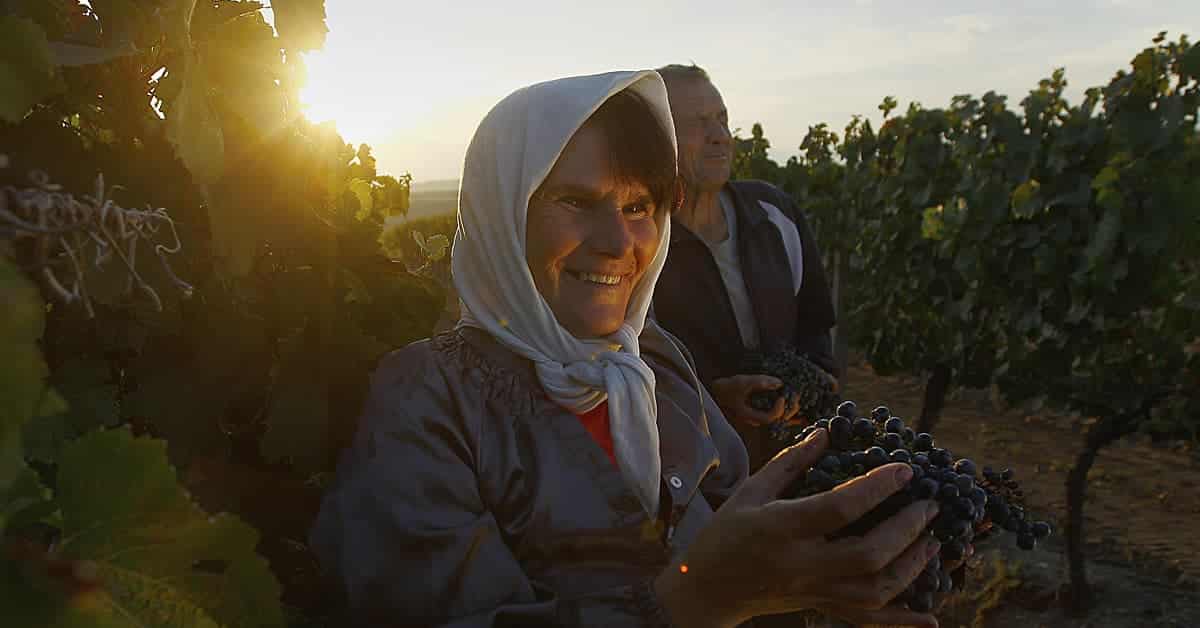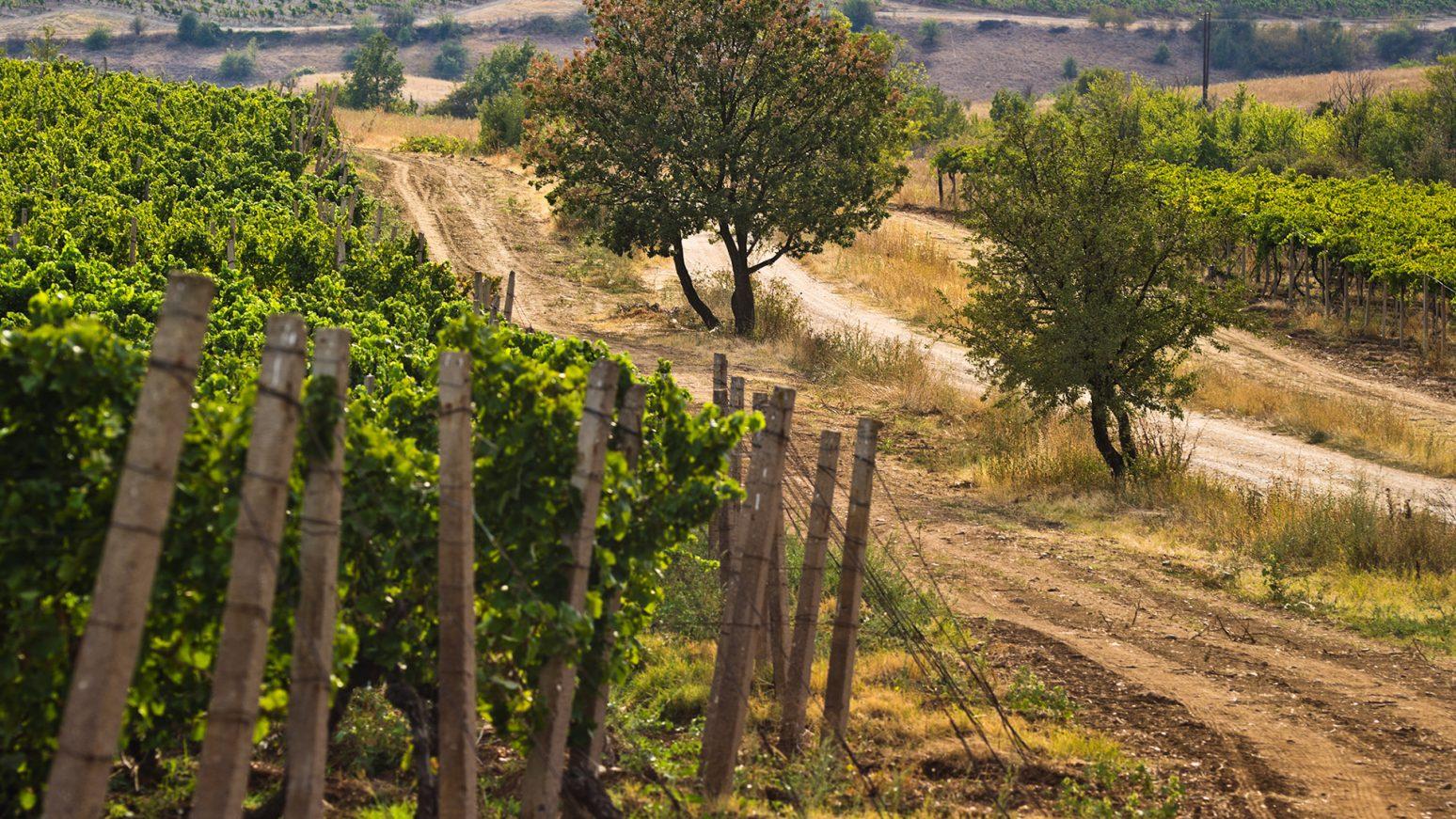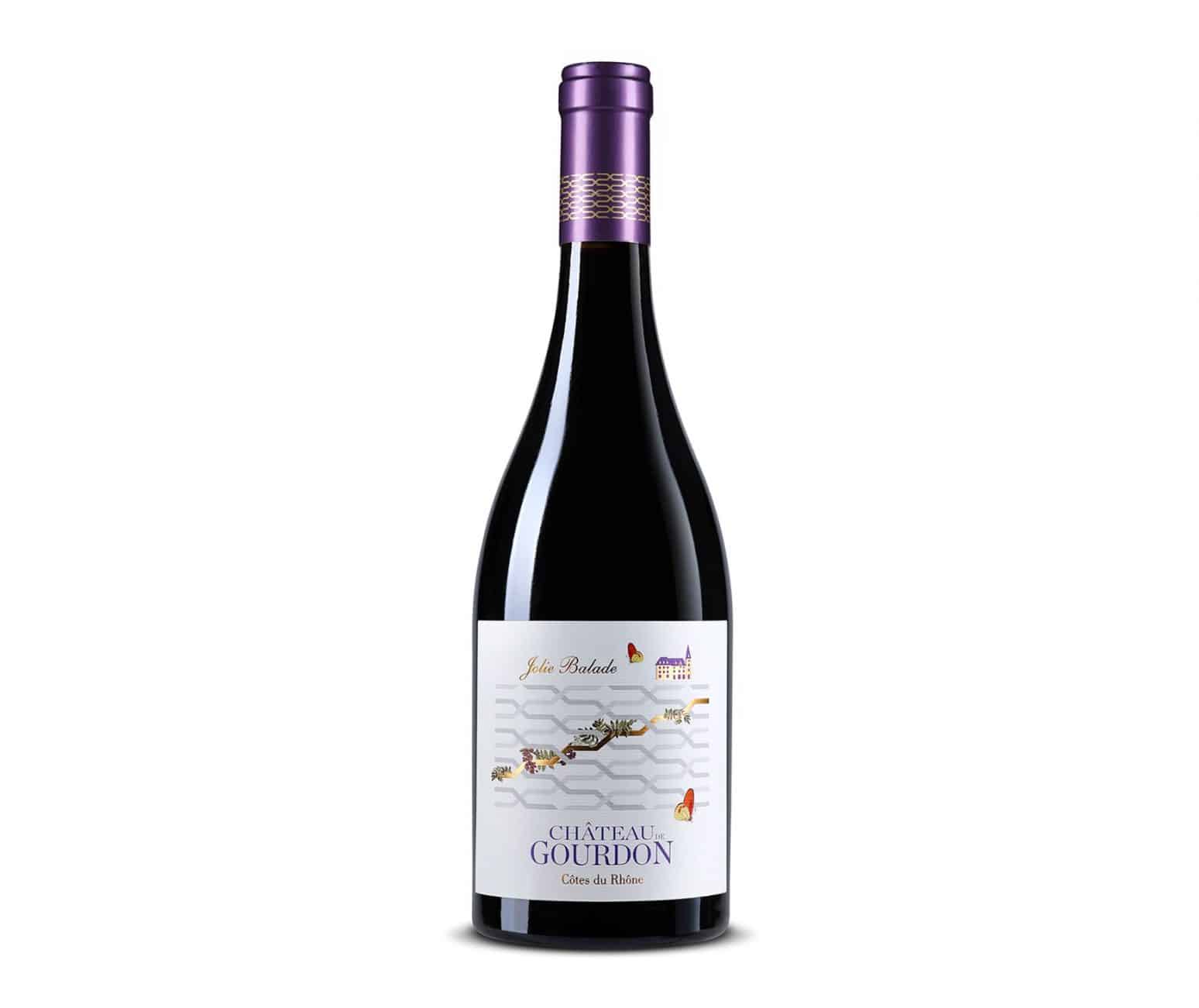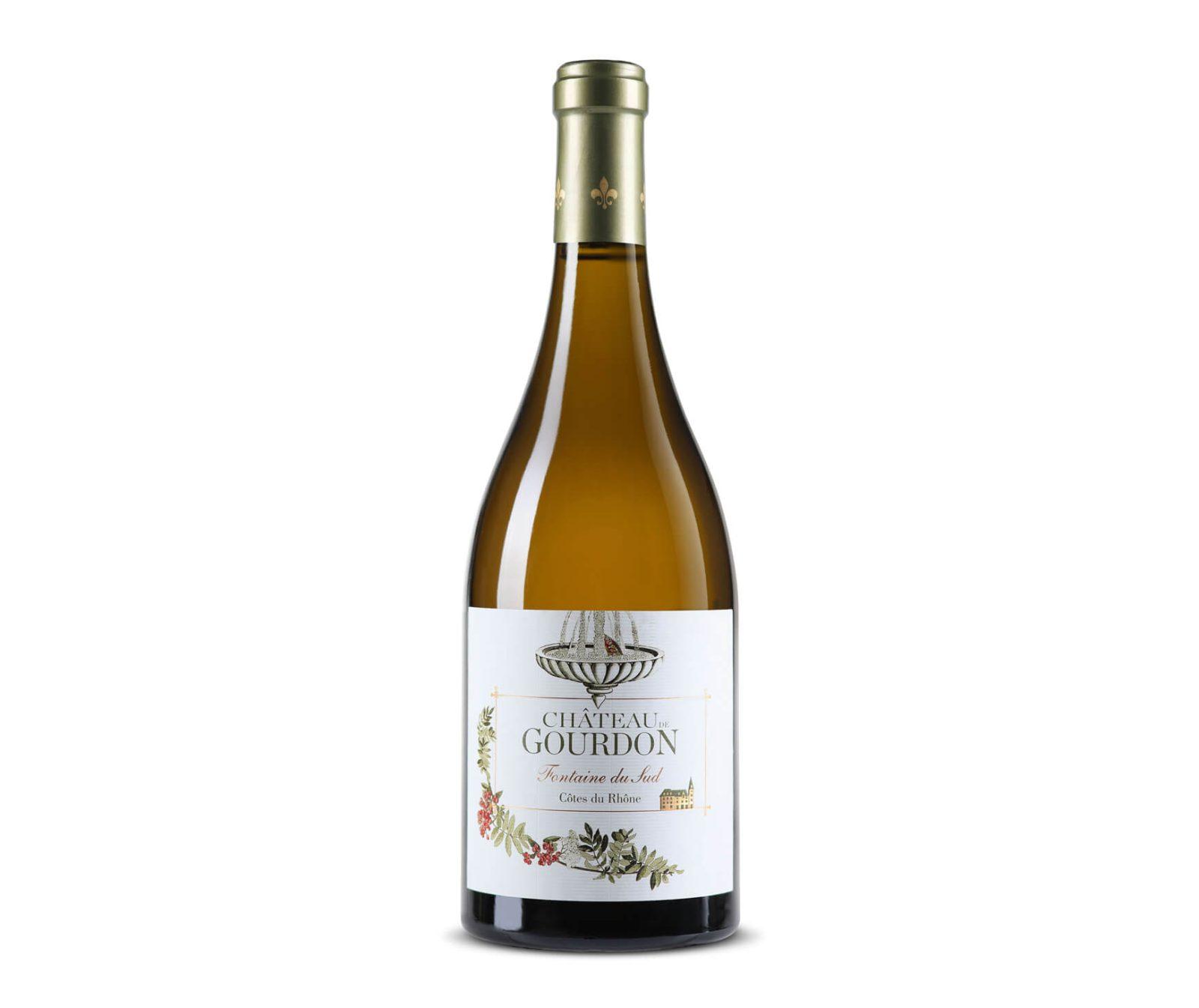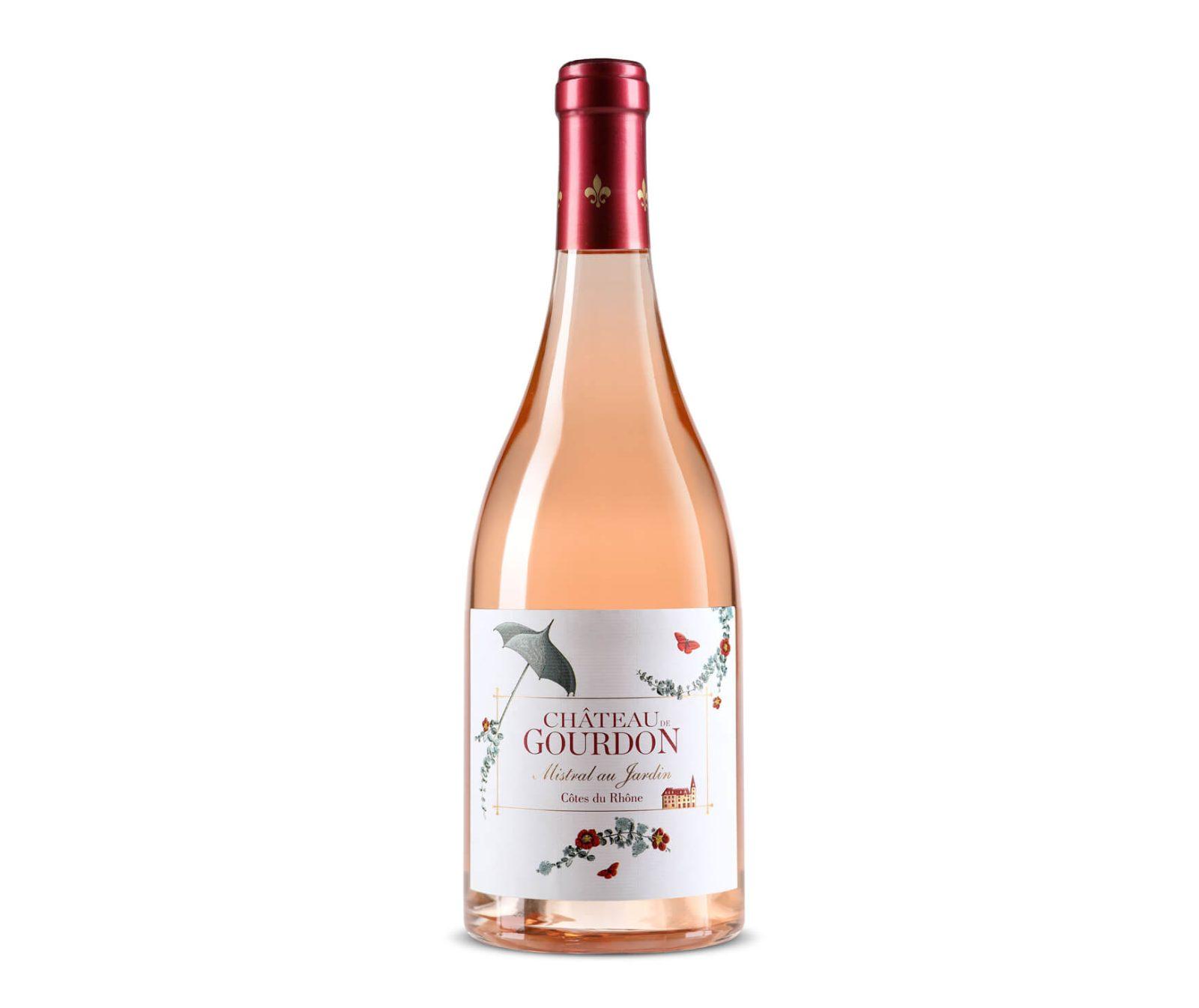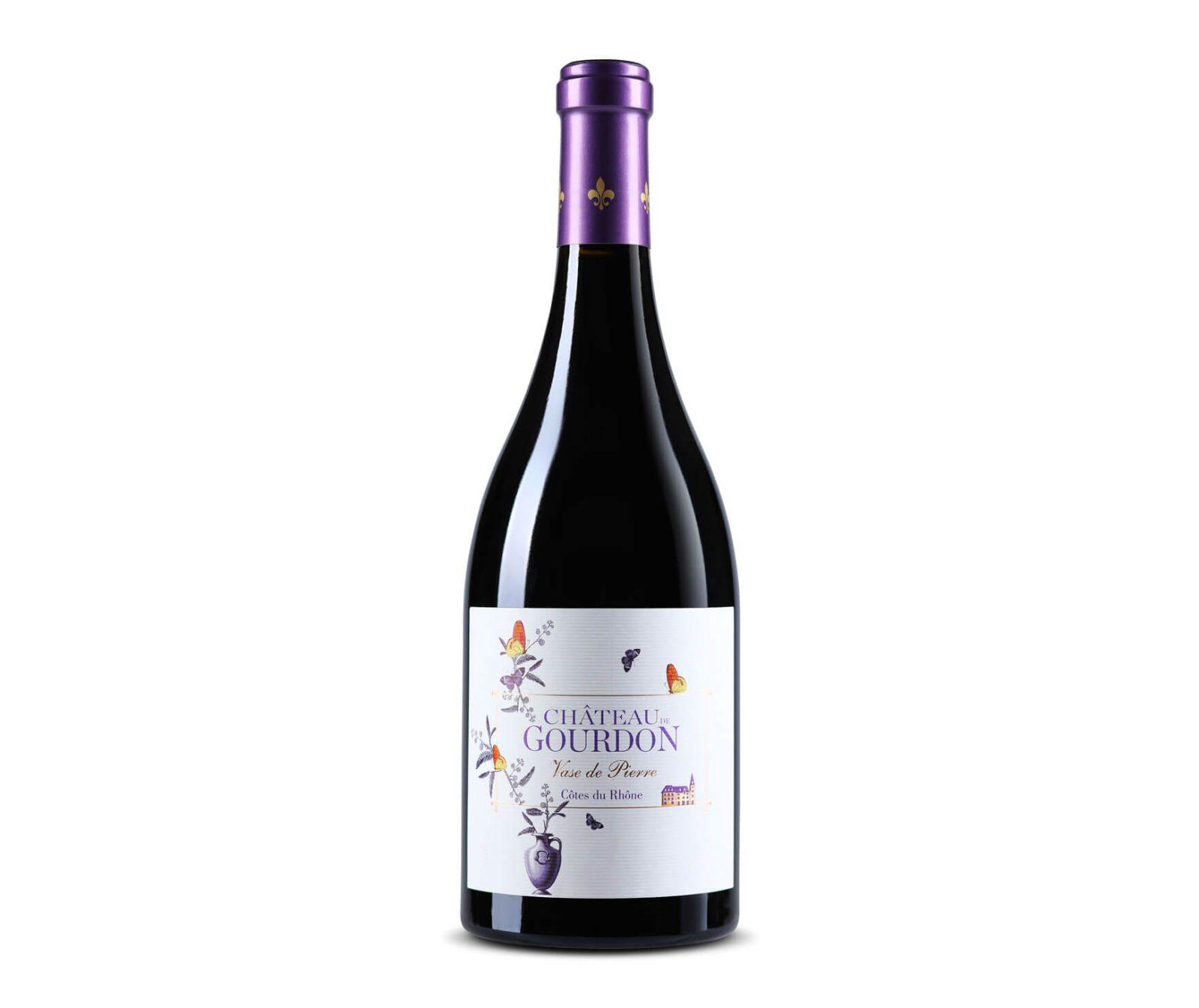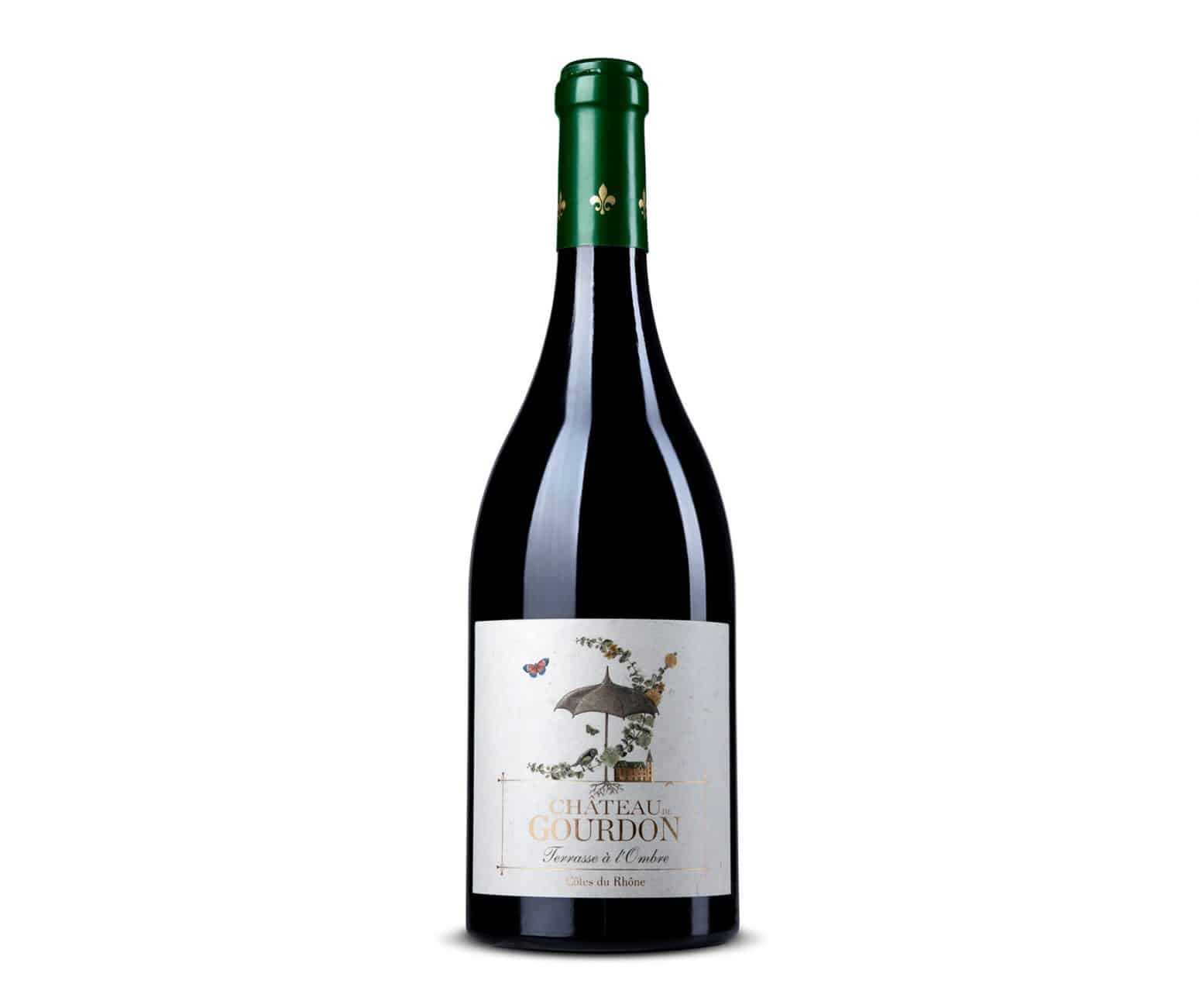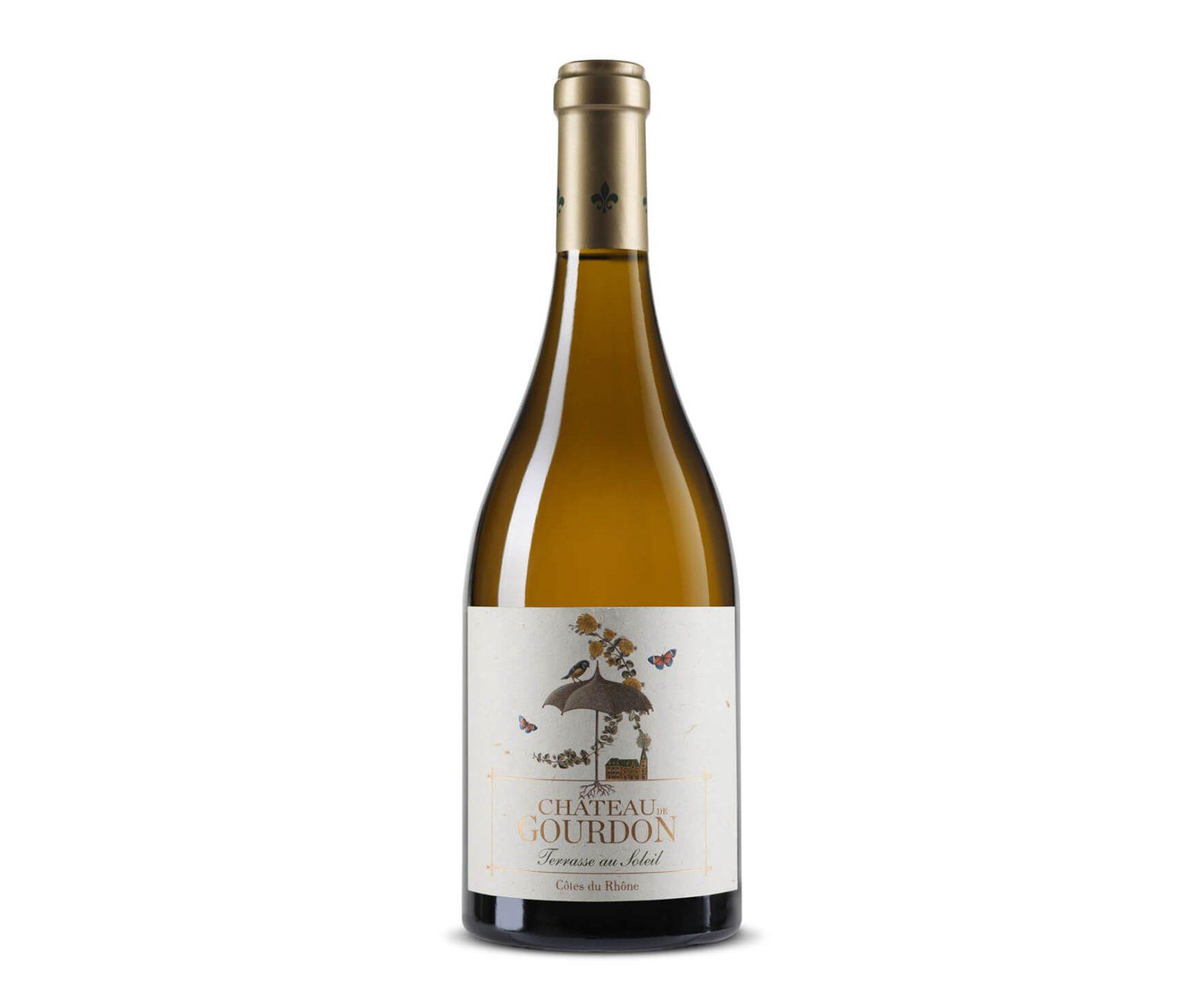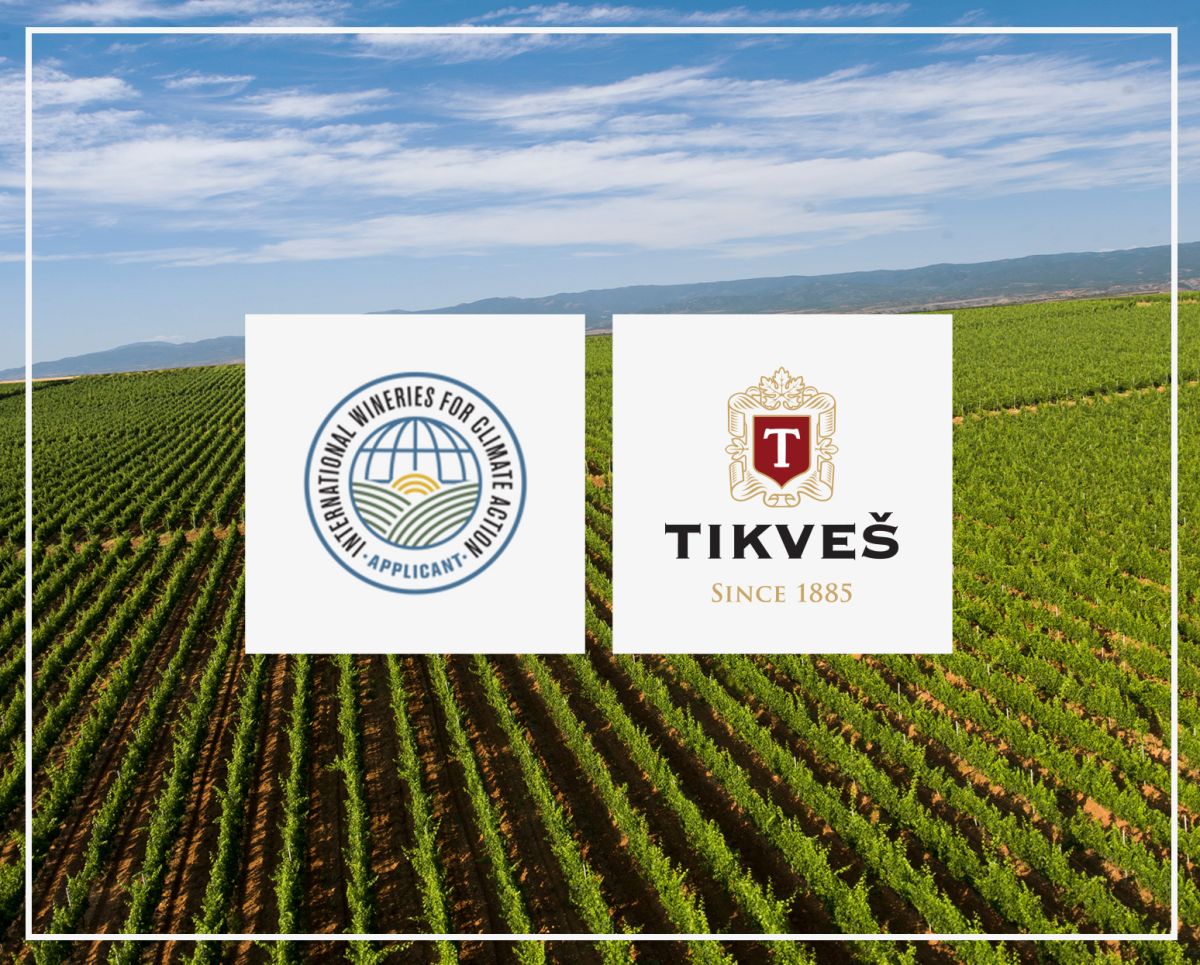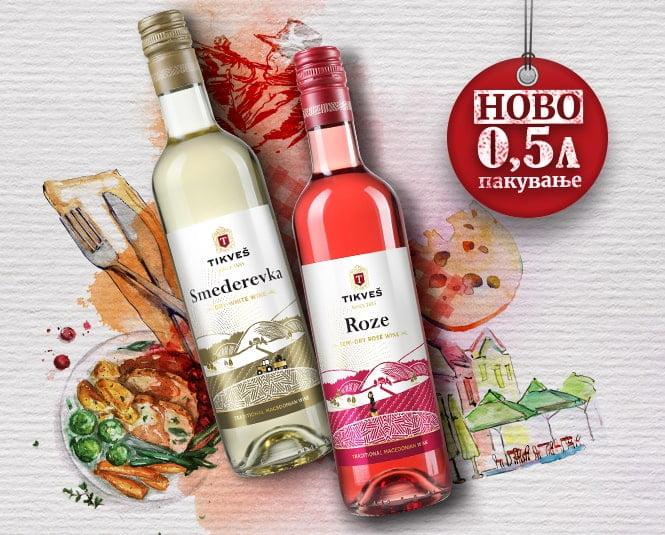The Tikveš wine sub-region is situated on the same longitude as Toscana in Italy, Bordeaux in France and the Napa valley in the USA. It is one of the biggest regions in Macedonia by square area and it is situated at latitude of 41-42˚. The climate is mixed, Continental-Mediterranean. The south of the Tikveš region is dominated by a Mediterranean climate featuring long and hot summers.
To the north there is a predominant continental climate with mild and wet winters. The mean annual temperature is 13.3˚C, while during the vegetation period it is 18˚C. In the summer the temperature may reach over 40˚C. The mean precipitation during the vegetation period amounts to 300-500 mm.
The Tikveš region is “protected” on three sides by mountains which prevent the northern winds from reaching the vineyards. The following types of soil prevail in the Tikves region: Rendzina, Vertisol, deluvial, alluvial soil and Terra Rosa.
MICROLOCATIONS
BAROVO
BAROVO
Click for more info
LEPOVO
LEPOVO
Click for more info
BELA VODA
BELA VODA
Click for more info
BAROVO
BAROVO
Click for more info
Barovo
Barovo, a unique micro location, engulfed in repose which harbours the life of the unscathed nature reflected in the freshness and liveliness of its wines. A soil that carries several epochs in its depths, growing its vines in the spirit of tradition and bestowing elegant and strong wines. A terroir where the Mediterranean and mountainous climates embrace and create an ideal balance of wines which bring to the light with incredible precision the strong heartbeat of the Tikveš region.
The combination of unique aspects of the micro location of Barovo affects the quality of the grapes used to produce wine exhibiting an affinity of conveying the sense of origin (terroir). The fact that the Barovo Terroir, with vineyards stretching on an area of 3 ha, is composed of different smaller land parcels with different soil and micro-climate features, enables the growing of a number of varieties such as Belan, Sauvignon Blanc, Chardonnay, Traminec, Temjanika, Rkaciteli, Vranec, Kratosija, …
Refreshing, lively and well-balanced wines
The common features of the wines originating from this location are their freshness and liveliness as a result of the big daily temperature differences which ensure a slow ripening process. Under such circumstances the wine grape retains a higher level of acids and has a full phenolic maturity. The good balance of the biological and phenolic maturity of the grapes is then passed on to the wine. Taking into account the dry hot summers with extremely high temperatures, achieving such balanced ripening is a great challenge for the Macedonian wine region.
The wide range of daily temperature amplitudes is facilitated by the penetration of Mediterranean climate through the Demir Kapija (Iron Gate) gorge, which is in the immediate vicinity of the Barovo locality, and its collision with the mountainous climate of the Kozuf mountain, which has effects at the altitude of 700 m of the Barovo vineyards, which, in turn, results in a moderate mean temperature of 18˚C during the vegetation period.
Structured and complex wines with velvety tannins and light minerality
The locality Barovo stretches at an altitude up to 1100 m and is considered the highest “fruit garden” in the Balkans. Generally speaking, the advantage of the vineyards located at higher altitudes is in the fact that the grapevine is exposed to harsh conditions and is fighting for survival, and under such circumstances it focuses its development on the fruit, the bunch of grapes, which results in grapes of exceptionally high quality. Only high quality grapes can produce high quality wines, which implies structured wines that are characterized by high content of acids, sugars, tannins, extracts, anthocyanins, polyphenols, intensive aromas, etc. Such structured wines can be aged further for years, both in oak barrels and in bottles, which adds to their complexity.
Good drainage is a common feature of the soil. In the light of the fact that there is no irrigation system, the annual precipitation of 300-500 mm3 is of utmost importance, while the texture of the soil enables the accumulation of water in the deeper sections of the soil profile. The deep section of the soil comprises a unique carbonate clay fossil soil (Paleosol) with volcanic deposits which contains nutrients and minerals. Due to the climate conditions, the root system penetrates deeply into the soil, absorbing the nutrients and minerals, which is reflected in a rich flavour of the red wines, which also exhibit an original feature of strong wines with beguiling elegance. Wines with velvety tannins and light salinity sufficient to stimulate the receptors and enhance the intensity of the flavour. In white wines such soil is reflected in intensive variety aromas and flavours, as well as a tinge of more pronounces salinity, which is defined as minerality.
LEPOVO
LEPOVO
Click for more info
Lepovo
Lepovo, a terroir where a perpetual breeze caresses the vines and the Mediterranean climate makes them drowsy under the strong sun on the sandy “beach”. The wines are sappy, full, fruity, with silky tannins, ready to continue their lethargic slumber in the oak barrels, and ultimately exhibit all of their splendor.
Unique location that represents a part of the River Vardar Valley wine region. It stretches on 16 ha of rolling hills only a couple kilometers from the river Vardar. The usual Mediterranean climate with long hot summers and mild winters is chilled for several degrees centigrade due to the perpetual refreshing wind which comes from the north, along the river Vardar, which makes this terroir unique.
Concentrated, meaty wines with fruit and jam aromas
The high daytime temperatures are responsible for the increased concentration of sugars, which, in combination with the higher alcohol and extract content, results in full-bodied wines. The perpetual northern breeze increases slightly the daily temperature differences, in particular in the evening, which maintains the acids at a higher level. The fruity aromas with jam features, as well as the sweet spicy notes are also results of the terroir’s climate characteristics.
Fruit-forward wines with subtle mature tannins and long aftertaste
The thirst of the vineyards in the draughty days quenches the soil, which is predominantly redzina, the main feature of which is the ability to accumulate sufficient humidity in its deeper sections. The mix of limestone and sandy soils results in wines with subtle tannins and intensive fruity notes. The soil is poor in nutrients, which forces the roots to go deeper and this ensures grapes of higher quality and a high quality wine with affinity for additional maturing.
BELA VODA
BELA VODA
Click for more info
Bela Voda
The location of “Bela Voda” vineyard bears the same name as the vineyard itself, with a geographical position that provides for unique conditions of grape growing. Through the skillful hands of the winemaker, its carrying specifics reflect the special and outstanding character of both wines originating from this vineyard.
Bela Voda White
The coupage of Chardonnay and Grenache Blanc, with their common characteristics of relatively neutral aromas and affinity to convey the terroir’s expression, give enough space to the winemaker to determine the style of this wine and make their “signature” mark. Bela Voda White offers an exquisite blend of fruity aromas of green, bony and tropical fruits, complemented by soft tones of vanilla, coconut and wet flint stone. The fresh and light mineral flavour that this wine bears in its very essence is the result of the terroir, which is being complemented with a light oily texture and the perfect balance. These aspects accompanied by the delicacy of the winemaker, create this once in a lifetime experience.
Bela Voda Red
There are two related wine varieties that are part of this impressionable wine, the variety of Vranec and Plavec, which seem to emphasize the importance of family ties and the wealth that arises thereof. The exciting Vranec, the flagship of our country’s wine style, accompanied with the warmth of the Mediterranean and the graceful Plavec, result in a wine with a southern charm, equally reflecting power and subtleness. The flamboyant aromas of red and black berries, complemented by the soft notes of sweet spices, announce the crescendo of flavours – juicy, fruity and fresh – with a texture of fine polished mature tannins. This harmony of flavors with a perfect balance bring out a long, complex, and prolonged, unforgettable taste.
Barovo, a unique micro location, engulfed in repose which harbours the life of the unscathed nature reflected in the freshness and liveliness of its wines. A soil that carries several epochs in its depths, growing its vines in the spirit of tradition and bestowing elegant and strong wines. A terroir where the Mediterranean and mountainous climates embrace and create an ideal balance of wines which bring to the light with incredible precision the strong heartbeat of the Tikveš region.
The combination of unique aspects of the micro location of Barovo affects the quality of the grapes used to produce wine exhibiting an affinity of conveying the sense of origin (terroir). The fact that the Barovo Terroir, with vineyards stretching on an area of 3 ha, is composed of different smaller land parcels with different soil and micro-climate features, enables the growing of a number of varieties such as Belan, Sauvignon Blanc, Chardonnay, Traminec, Temjanika, Rkaciteli, Vranec, Kratosija, …
Refreshing, lively and well-balanced wines
The common features of the wines originating from this location are their freshness and liveliness as a result of the big daily temperature differences which ensure a slow ripening process. Under such circumstances the wine grape retains a higher level of acids and has a full phenolic maturity. The good balance of the biological and phenolic maturity of the grapes is then passed on to the wine. Taking into account the dry hot summers with extremely high temperatures, achieving such balanced ripening is a great challenge for the Macedonian wine region.
The wide range of daily temperature amplitudes is facilitated by the penetration of Mediterranean climate through the Demir Kapija (Iron Gate) gorge, which is in the immediate vicinity of the Barovo locality, and its collision with the mountainous climate of the Kozuf mountain, which has effects at the altitude of 700 m of the Barovo vineyards, which, in turn, results in a moderate mean temperature of 18˚C during the vegetation period.
Structured and complex wines with velvety tannins and light minerality
The locality Barovo stretches at an altitude up to 1100 m and is considered the highest “fruit garden” in the Balkans. Generally speaking, the advantage of the vineyards located at higher altitudes is in the fact that the grapevine is exposed to harsh conditions and is fighting for survival, and under such circumstances it focuses its development on the fruit, the bunch of grapes, which results in grapes of exceptionally high quality. Only high quality grapes can produce high quality wines, which implies structured wines that are characterized by high content of acids, sugars, tannins, extracts, anthocyanins, polyphenols, intensive aromas, etc. Such structured wines can be aged further for years, both in oak barrels and in bottles, which adds to their complexity.
Good drainage is a common feature of the soil. In the light of the fact that there is no irrigation system, the annual precipitation of 300-500 mm3 is of utmost importance, while the texture of the soil enables the accumulation of water in the deeper sections of the soil profile. The deep section of the soil comprises a unique carbonate clay fossil soil (Paleosol) with volcanic deposits which contains nutrients and minerals. Due to the climate conditions, the root system penetrates deeply into the soil, absorbing the nutrients and minerals, which is reflected in a rich flavour of the red wines, which also exhibit an original feature of strong wines with beguiling elegance. Wines with velvety tannins and light salinity sufficient to stimulate the receptors and enhance the intensity of the flavour. In white wines such soil is reflected in intensive variety aromas and flavours, as well as a tinge of more pronounces salinity, which is defined as minerality.
Lepovo, a terroir where a perpetual breeze caresses the vines and the Mediterranean climate makes them drowsy under the strong sun on the sandy “beach”. The wines are sappy, full, fruity, with silky tannins, ready to continue their lethargic slumber in the oak barrels, and ultimately exhibit all of their splendor.
Unique location that represents a part of the River Vardar Valley wine region. It stretches on 16 ha of rolling hills only a couple kilometers from the river Vardar. The usual Mediterranean climate with long hot summers and mild winters is chilled for several degrees centigrade due to the perpetual refreshing wind which comes from the north, along the river Vardar, which makes this terroir unique.
Concentrated, meaty wines with fruit and jam aromas
The high daytime temperatures are responsible for the increased concentration of sugars, which, in combination with the higher alcohol and extract content, results in full-bodied wines. The perpetual northern breeze increases slightly the daily temperature differences, in particular in the evening, which maintains the acids at a higher level. The fruity aromas with jam features, as well as the sweet spicy notes are also results of the terroir’s climate characteristics.
Fruit-forward wines with subtle mature tannins and long aftertaste
The thirst of the vineyards in the draughty days quenches the soil, which is predominantly redzina, the main feature of which is the ability to accumulate sufficient humidity in its deeper sections. The mix of limestone and sandy soils results in wines with subtle tannins and intensive fruity notes. The soil is poor in nutrients, which forces the roots to go deeper and this ensures grapes of higher quality and a high quality wine with affinity for additional maturing.
The location of “Bela Voda” vineyard bears the same name as the vineyard itself, with a geographical position that provides for unique conditions of grape growing. Through the skillful hands of the winemaker, its carrying specifics reflect the special and outstanding character of both wines originating from this vineyard.
Bela Voda White
The coupage of Chardonnay and Grenache Blanc, with their common characteristics of relatively neutral aromas and affinity to convey the terroir’s expression, give enough space to the winemaker to determine the style of this wine and make their “signature” mark. Bela Voda White offers an exquisite blend of fruity aromas of green, bony and tropical fruits, complemented by soft tones of vanilla, coconut and wet flint stone. The fresh and light mineral flavour that this wine bears in its very essence is the result of the terroir, which is being complemented with a light oily texture and the perfect balance. These aspects accompanied by the delicacy of the winemaker, create this once in a lifetime experience.
Bela Voda Red
There are two related wine varieties that are part of this impressionable wine, the variety of Vranec and Plavec, which seem to emphasize the importance of family ties and the wealth that arises thereof. The exciting Vranec, the flagship of our country’s wine style, accompanied with the warmth of the Mediterranean and the graceful Plavec, result in a wine with a southern charm, equally reflecting power and subtleness. The flamboyant aromas of red and black berries, complemented by the soft notes of sweet spices, announce the crescendo of flavours – juicy, fruity and fresh – with a texture of fine polished mature tannins. This harmony of flavors with a perfect balance bring out a long, complex, and prolonged, unforgettable taste.
The Château de Gourdon estate is located in the southern area of the Rhone Valley in France, near the town of Bollène. The first vines on this location date back in 1870, and today the vineyards are spread on a hilly area of 50 hectares. The vines are planted on slopes with southern exposition, which enables the exposure of the grapes to the sun during the whole day, while the Mistral wind, which is often present, helps the grapes remain healthy and less susceptible to diseases.
These factors, combined with the sandy soil, provide for high quality grapes from Château de Gourdon vineyards during every harvest, which, in turn, contributes to the making of complex wines with pronounced aromaticity and character. Our winery produces wines of several varieties, including Grenache Blanc, Viognier, Grenache Noir, Syrah, and Carignan.
Château de Gourdon
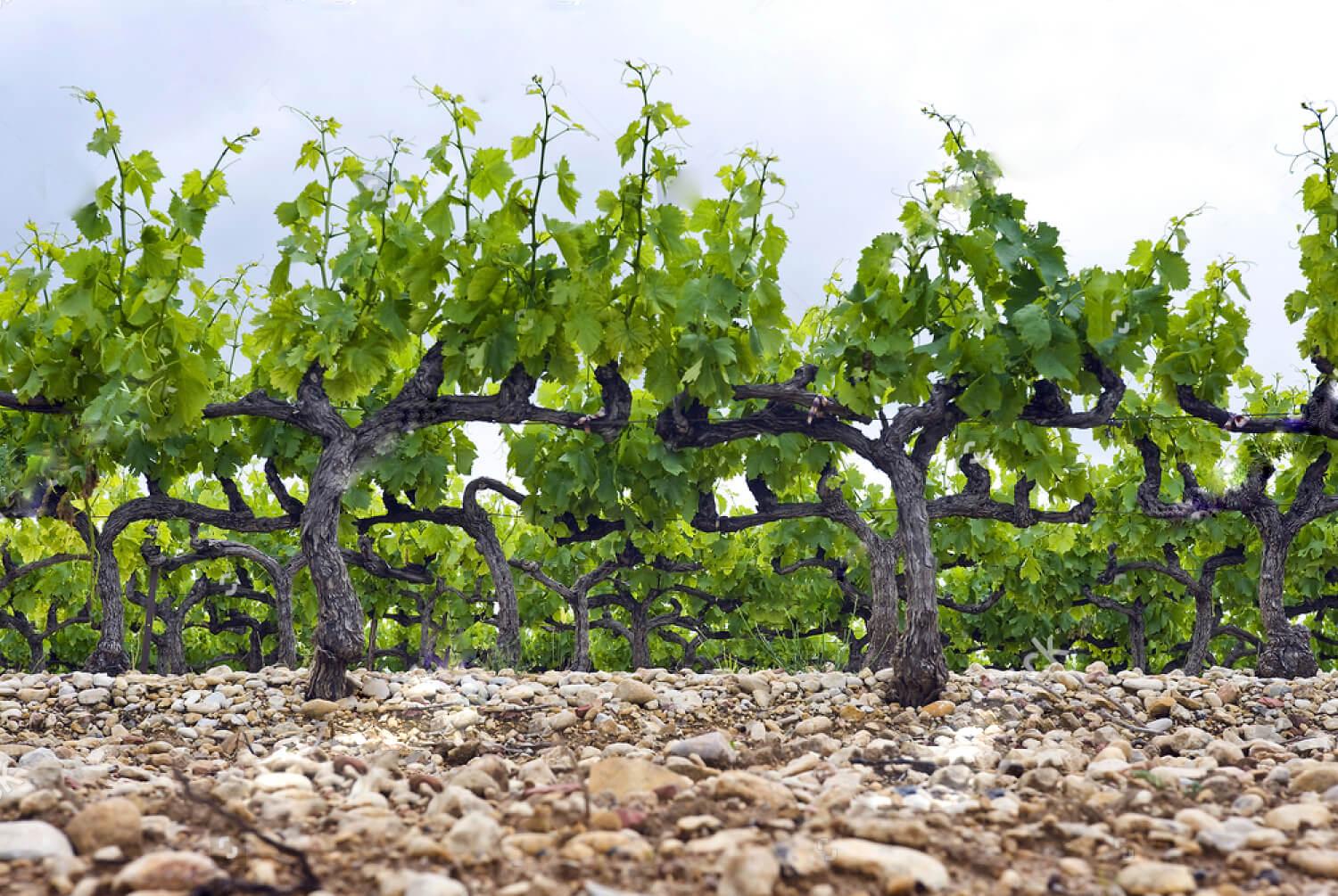
The estate is situated in the core of the wine region of Southern Rhône, France. It has been named after the eponymous river Rhône, which had been deemed for centuries as the wine artery along which the Ancient Romans started with serious development of viticulture, as well as the production of quality wines such as “Falernian” – a renowned wine in Ancient Rome.
Château de Gourdon is surrounded by picturesque vineyards straddling an area of 50 ha, rampant on the gentle slopes of the Côtes du Rhône and Côtes du Rhône Village appelations at the very border with the world renowned wine sub-region of Châteauneuf-du-Pape, or “The Pope’s new castle”, which got its name at the time when Avignon had become the residence of Pope Clement V in the XIV century.
Château de Gourdon has a fascinating history, which is of great importance for the beautiful town of Bollène, at the outskirts of which the estate lies. In 1793 the estate was used as the summer residence of Cardinal de La Fare, while the vines were planted a bit less than a century later, in 1870.
Terroir – The strong influence of the Mediterranean climate enables full maturity of the grapes, while the light breeze coming from the north, along the Rhône, reduces the temperature in the summer evenings, thus providing the grapes with sufficient natural acids, which, in turn, give the wines freshness and great balance. The leading variety for the red wines is Grenache Red, most often coupaged with Syrah and Carignan, while Grenache Blanc and Viognier are the leading white wine varieties. The Mediterranean variety of Cinsault, in coupage with Grenache Gris, forms the basis for the Rosé wines. The sandy and nutrient poor soil provides the wines with intense fruitiness, while the silicate and limestone components of the soil affect the irradiation of the vine’s fruit zone and the root system extending toward the zone rich in nutrients and minerals, which provide the wines with an enhanced level of polyphenols and specific minerality.
About the capacity – The Château de Gourdon estate is located in the northernmost area of the Southern Rhône region, hence the climate is colder, which contributes to a greater freshness and aromaticity of the wines. Characteristics of the soil, sand, vine stumps over 40 years old (Vieilles Vignes), as well as the soft tannins are the advantages of our elegant vines from the plots of La Marron, La Vernes, Lade Ganess, etc.
The Château de Gourdon estate stretches on an area of 50 ha, and most of the vines are of the Grenache and Syrah varieties. The winegrowing had always been guided by the principles of utmost respect for the nature and the vines. To the present day, many of the plots have old vines that produce high quality wines that may be tasted in the cellars of the Château’s winery.
Château de Gourdon has two resplendent ceremonial halls and a covered terrace, which represent an attractive space for organisation of receptions, meetings or seminars. The terrace offers a wonderful view of the park, which can also be used to organised events of different types. The old pool is a perfect site for organisation of evening parties and formal cocktails. The Château has a capacity to accommodate up to 150 people, while the park can accommodate more than 500 people.
The Château – winery has three apartments located in the castle and in the adjacent buildings, which can accommodate 4 to 10 people for a shorter or longer stay all year round. In the period from May through September the outdoors pool is also open, complementing perfectly the offer for a peaceful holiday by the vineyards. Château de Gourdon holds an excellent position, on the crossroads among Vaucluse, la Drôme Provençale, Le Gard and l’Ardèche.



